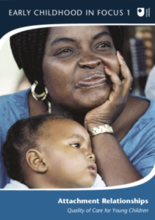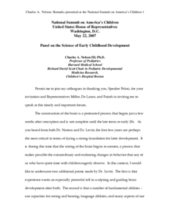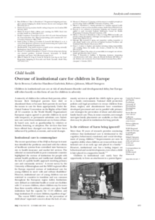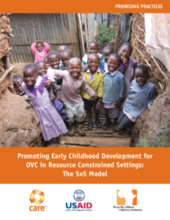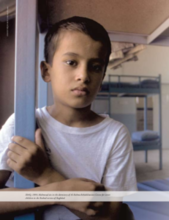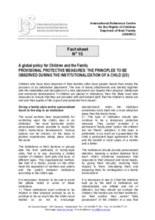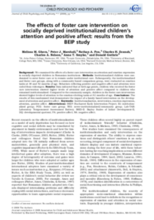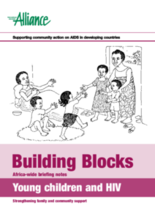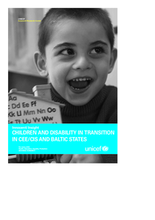Displaying 451 - 460 of 496
An exploration of various contributing factors with regard to attachment relationships from early childhood to adulthood.
The transcript of a speech by Dr. Charles A. Nelson III for the United States House of Representatives. Focus on the basic science and fundamental importance of early childhood development. Advocates strongly for increased attention on the experiences and environments provided for young children.
This article discusses the use of institutional care for children in Europe and shows that it remains common place despite the evidence of harm for children, including attachment disorder and developmental delay.
Overview of a CARE’s 5x5 Model, designed as an early childhood development intervention for orphans and vulnerable children (OVC) in order to provide long-term physical, socio-emotional, and cognitive benefits.
This is a chapter from the United Nations Secretary-General’s Study on Violence Against Children that specifically explores the factors contributing to violence against children in institutional care and justice institutions. This chapter includes sections on the sources of violence against children in institutional care, the impact of institutional care on children’s health and development, and the populations of children most likely to become institutionalized.
A list of bi-lateral and multilateral funding agencies for child protection. Includes names, email addresses, and particular area of focus.
A brief 2-page overview of appropriate residential institution characteristics. Includes information on staffing, and the optimum size of each family-like unit.
The study examined the effects of a foster care intervention on attention and emotion expression in socially deprived children in Romanian institutions
Practical guidance on dealing with young children in the context of HIV/AIDS. Focuses on the developmental needs of children affected by HIV/AIDS. Also focuses on care and treatment provision for children who are HIV-positive.
Report presents and analyzes new research and data around children with disabilities in the region, the effects of institutional care, and the need for family support services.

